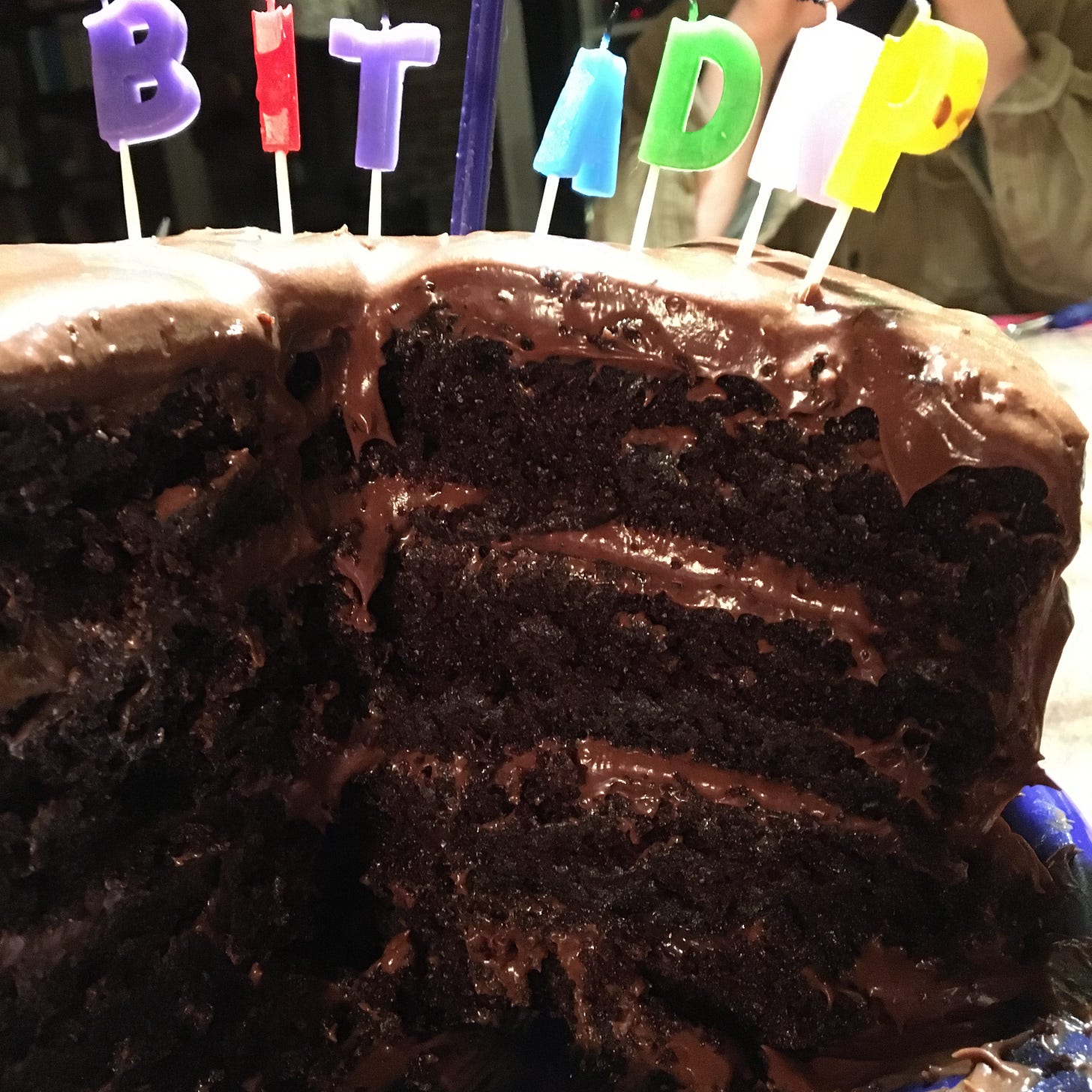Cake
Leavening for good
Dear Bread,
We ask a lot of you, don’t we? Not just to feed us, but to hold ideas about feeding and care.
I’ve been thinking again about the morals that are baked into baking bread, and re-reading Linda Civitello’s Baking Powder Wars gives a nice overview of what that looked like in early 19th century America.
“Good bread was the measure of a good woman, a good wife, and a good mother. However, new technologies and new foods conflicted with traditional belief systems and created a moral crisis with women and bread at the center.”
These conflicts came from the colonists’ feelings for bread – rooted in Christianity and Western civilization – rubbing up against the rise of manufacturing and manufactured goods. This created anxiety that’s hard for us to imagine. Given enough money and political stability, we can order anything, anytime. The social cauldron made for extremes, religious revivals and dietary rules popped up like mushrooms after rain.
Linda Civitello names Sylvester Graham & two other men as key proselytizers for proper bread, setting the stage for a book that dives into the history of women, America, and baking ingredients and technologies.
When I first read it, I lost a story I told myself. When I was a kid, I thought my cookies and cakes were tied into a pioneer self-sufficiency. Sure, I read Laura Ingalls Wilder’s books and had the cookbook that made plain the food deprivations that homesteaders faced, but the gee-gosh tone of the TV series made a deeper impression. I believed I was stepping into history as I baked and baked. I felt a similar pride once I had kids and got wrapped up in the early 2000s DIY wave. I baked pancakes, cookies, bread, even cereal. My husband and I gardened and preserved food – he loved the late shift, canning tomatoes, and blanching greens for the freezer after the kids and I went to bed. I even taught Industrialize Your Food Supply classes, trying to help people find agency in feeding themselves.
Reading food history stripped me of my illusions. The kind of baking I did was only possible because farming and food processing had advanced* to a scale where flour, sugar and other ingredients were affordable. Recreational baking is the name, and it emerged in America in the 1800s as mechanization revised how we ate, changing everything from farm to flour mill, and other processing facilities.
My sense of self in the kitchen began as I transformed industrially produced ingredients into treats, not essential foods. Was I a fraud? No, just drunk on 1970s patriotism, a cocktail served to everyone as the nation saluted the Bicentennial. Baking made me feel like Betsy Ross.
I have patience with myself these days, and whatever ideas I have. I understand more about where my food comes from, and where I am in the food supply. Lately, I am deep in affection for cake. An article about cake and illusions kicked off the feelings, plus my son Francis will be 24 on Saturday! He usually asks for two cakes, a Bonnie Butter cake with double butter – a mistake I made that he loves, and for a Nian gao, Chinese rice cake, because we always celebrated the Lunar New Year. Baking birthday cakes is such a meditation. I look forward to a little marathon of praying with cake.
In addition to his classic cakes, I offered up Lisa Marie Donovan’s chocolate cake, which has been perching in my mind since I made it from her Instagram post, and which is now published in the NYTimes. I’ll make that for our family party, and a double butter yellow cake for his friends’ party, and a Nian gao, too.
“What is cake, but the shape of our hopes and dreams?” my husband once said, a line he improvised in a dance about cake.
Let us eat cake, and dream of hope.
Amy
*Note that the terms surrounding technological changes are usually positive. Progress depends upon raw materials, like land taken from indigenous peoples, and labor from people taken from their lands. The shorthand words for all we’ve done in America, the terms that show our sins amidst our achievements, are just emerging. I don’t know how to incorporate these thefts & our debts seamlessly into my writing yet.
Further reading, cake and otherwise:
I highly recommend subscribing to The Conversation, a site for academic voices offering thoughtful, useful words. These two pieces really struck me lately.
My pal Ali Berlow has a newsletter called Curious Kitchen, and her latest post is about fundraising for World Central Kitchen with #birthdaycakesforpeace





That's the trouble with studying food history - the more you learn, the more you realize how our modern foodways are not at all what we think they are! I
This is great, Amy! Thank you.